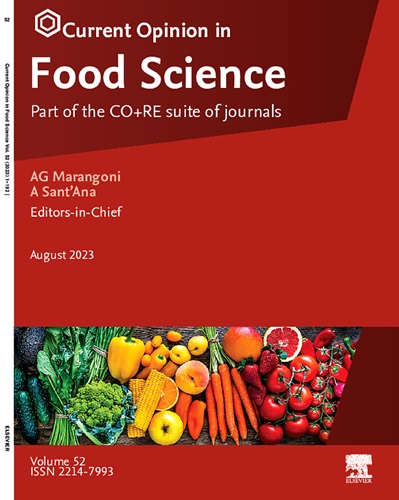The role of probiotic foods in acute pancreatitis: current status and future directions
IF 9.1
1区 农林科学
Q1 FOOD SCIENCE & TECHNOLOGY
引用次数: 0
Abstract
Acute pancreatitis (AP) is a global disease with a complex pathogenesis, while the intestinal environment has been shown to be closely associated with the onset and progression of AP. Currently, probiotic foods have garnered increasing interest as a potential treatment for AP due to their ability to improve intestinal barrier function, maintain intestinal immunity, and modulate intestinal microbiome. This review summarizes research advances in probiotic foods applied in animal studies and clinical trials of AP management, including the strains, dosages, and durations in probiotic foods, and conclusion, and further discusses the potential mechanisms for probiotic foods in AP. Despite promising results, several limitations and unanswered questions remain, including the optimal probiotic strains, timing of intervention, and guideline for the components of probiotic foods. Future large-scale, multicenter randomized controlled trials are needed to elucidate the efficacy and mechanisms of probiotic foods in AP and address these current gaps in knowledge.
益生菌食品在急性胰腺炎中的作用:现状与未来方向
急性胰腺炎(AP)是一种发病机制复杂的全球性疾病,而肠道环境已被证明与急性胰腺炎的发病和进展密切相关。目前,益生菌食品因其改善肠道屏障功能、维持肠道免疫力和调节肠道微生物组的能力而作为治疗急性胰腺炎的一种潜在方法受到越来越多的关注。本综述总结了益生菌食品在治疗 AP 的动物研究和临床试验中的应用研究进展,包括益生菌食品中的菌株、剂量、持续时间和结论,并进一步讨论了益生菌食品治疗 AP 的潜在机制。尽管研究结果令人鼓舞,但仍存在一些局限性和悬而未决的问题,包括最佳益生菌菌株、干预时机和益生菌食品成分指南。未来需要进行大规模、多中心随机对照试验,以阐明益生菌食品对急性肠胃炎的疗效和机制,并解决目前的这些知识空白。
本文章由计算机程序翻译,如有差异,请以英文原文为准。
求助全文
约1分钟内获得全文
求助全文
来源期刊

Current Opinion in Food Science
Agricultural and Biological Sciences-Food Science
CiteScore
18.40
自引率
4.00%
发文量
157
审稿时长
92 days
期刊介绍:
Current Opinion in Food Science specifically provides expert views on current advances in food science in a clear and readable format. It also evaluates the most noteworthy papers from original publications, annotated by experts.
Key Features:
Expert Views on Current Advances: Clear and readable insights from experts in the field regarding current advances in food science.
Evaluation of Noteworthy Papers: Annotated evaluations of the most interesting papers from the extensive array of original publications.
Themed Sections: The subject of food science is divided into themed sections, each reviewed once a year.
 求助内容:
求助内容: 应助结果提醒方式:
应助结果提醒方式:


